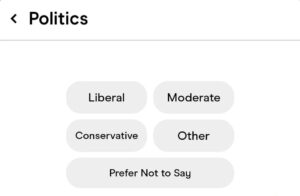By Maureen Kelleher/LISC Chicago
July 2, 2009 – Like the rest of the nation, Illinois is facing an economic crisis. The recession has caused state tax revenues to plummet, leaving a budget hole estimated at $9 billion.
As the state fiscal year came to a close Tuesday, Gov. Patrick Quinn and the General Assembly were still wrangling over whether a tax increase or spending controls on pensions and Medicaid would be the best long-term solution to the state’s budget woes. Budget negotiations have extended beyond the June 30 midnight deadline, and Quinn vetoed a partial state budget yesterday.
Should lawmakers fail to pass a budget plan, state spending will default to a “doomsday budget” passed in May. This budget would slash state spending to half of what it was FY 2009.
The deep cuts would eliminate state money for after-school programs, cut funds for school-based health centers by 75 percent and drop 70,000 children from All Kids, the state’s child health insurance program.

These cuts also would also dry up funds that sustain services provided by local community nonprofits, including Elev8 community partners.
“We’re seeing the state pulling out the social programs that affect many neighborhoods,” said Ramon Gardenhire, Elev8 project manager for the Federation for Community Schools. “The reduction in funding is going to truly impact the health of these communities. As we’ve seen from Elev8, we know that it takes a healthy community to support a healthy school.”
At Ames Middle School in Logan Square, state budget cuts will have devastating effects on Elev8 after-school programs, said Elev8 director Adriana Portillo-Bartow. The after-school coordinator and two group leaders were paid through a state program called Teen Reach, which would be eliminated in the doomsday budget. “It’s a huge deal,” she said.

Ames’ community partner, the Logan Square Neighborhood Association, is nationally recognized for its Parent Mentor program, which trains parents to work alongside teachers in the classroom while helping them set and achieve personal goals like furthering their own education. However, state budget cuts would end this longstanding, successful program, too.
“The monies from the state pay to coordinate the program,” Portillo-Bartow said. “Without staff to coordinate, we won’t have a program.”
A Parent Mentors offshoot, Literacy Ambassadors, will also be forced to close under the doomsday budget. Literacy Ambassadors trains a cadre of parents who host parties in homes to teach their peers about how to help their young children learn to read and appreciate books.
At Marquette Elementary in Chicago Lawn, Elev8 “is very much connected to neighborhood-level resources,” said Elev8 director Sandra del Toro. “Our ability to act and work in partnership with other neighborhood agencies is really limited by the current proposal.”

For example, Elev8 Marquette partners with Cease Fire and Safety Net, two state-funded local violence prevention groups, to provide mentoring and life-skills training to a core group of middle-school young men who have demonstrated a need for these supports.
“I don’t know how we can do that if Cease Fire and Safety Net are eliminated from the state budget, which is currently what it looks like,” del Toro said.
Another state-funded program, Grow Your Own, which trains neighborhood residents to become classroom teachers in local schools, is also on the chopping block.
“We’ve been looking for ways to connect some of our teacher candidates to be placed at Marquette,” said del Toro. “I don’t know what we would do with 44 candidates, several of whom are already at the college level and have passed the Basic Skills exam. To abandon them at this point is very bad public policy.”
Elev8 Marquette also provides immigration services, largely focused on helping those eligible for citizenship, to parents through state-funded programs. About half of Marquette’s student body is Latino, and many parents are immigrants.

“I don’t know what our capacity would be to bring those resources into the neighborhood if we don’t have state funds dedicated to that,” said del Toro.
In the larger picture, sustaining Elev8’s comprehensive supports for students and families likely will require state funds.
“We’ve been looking for ways to extend [Elev8] beyond Atlantic Philanthropies funding,” said del Toro, which will only last until 2011. “The current budget crisis shows the difficulty of solely relying on the state to do this.”






Be First to Comment